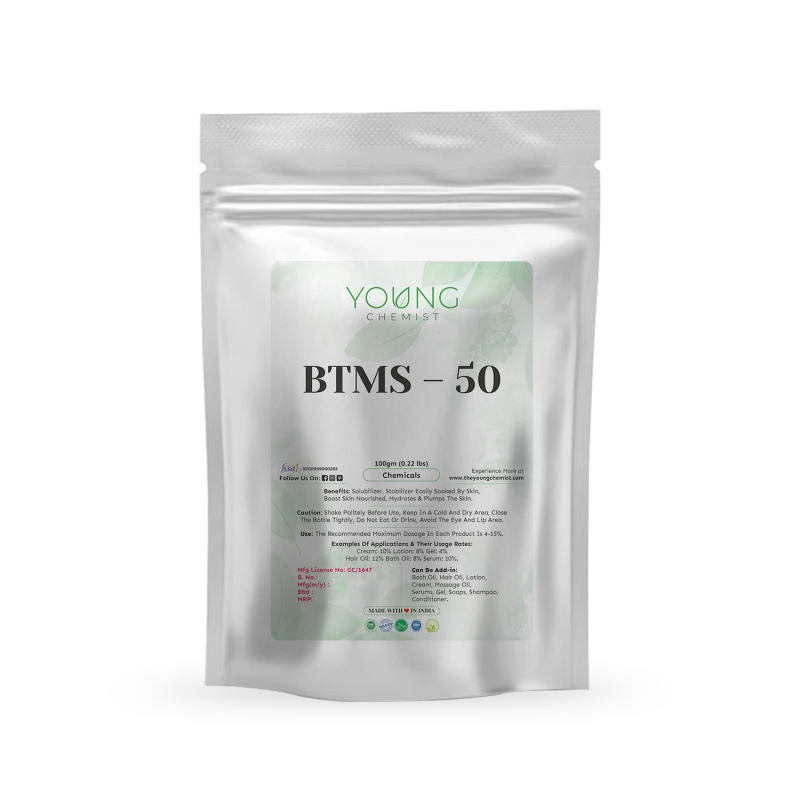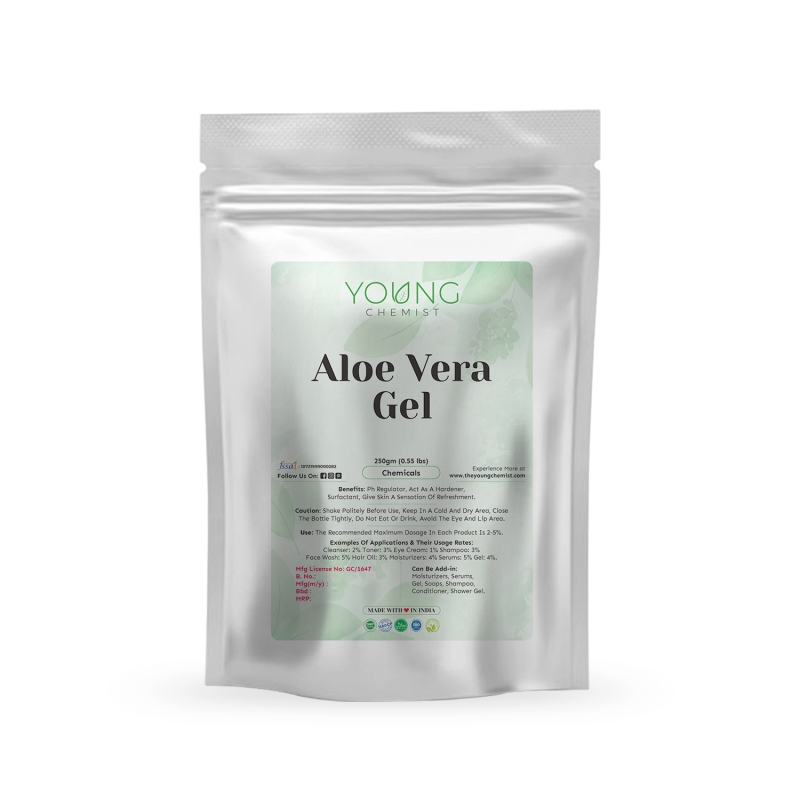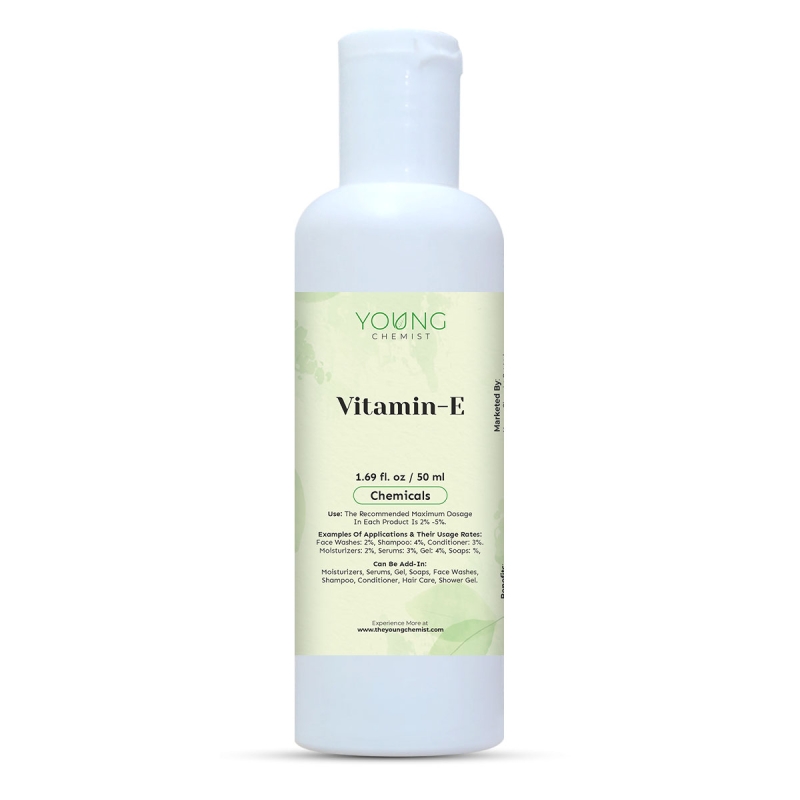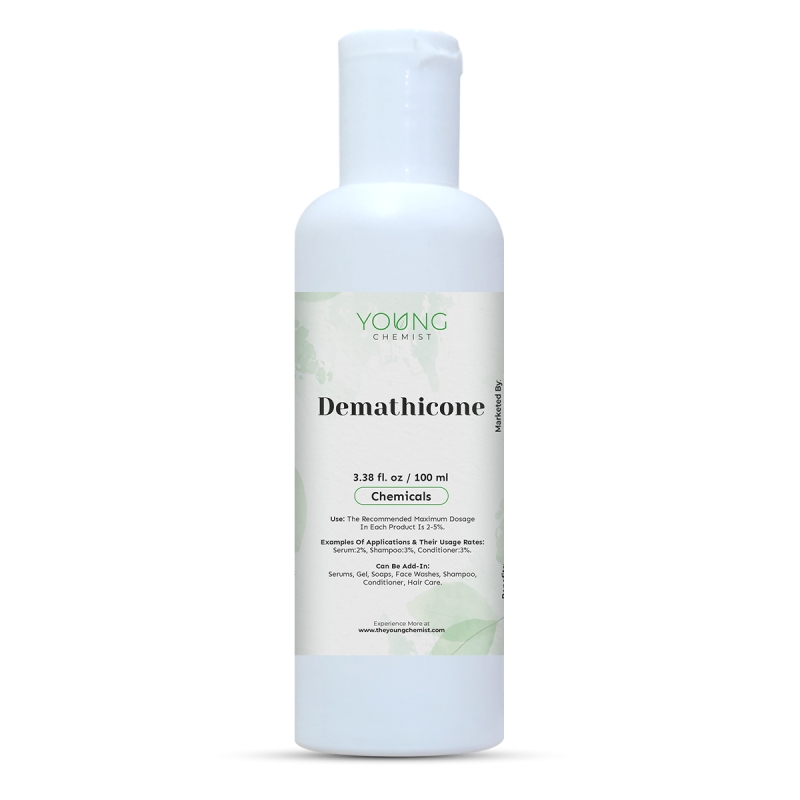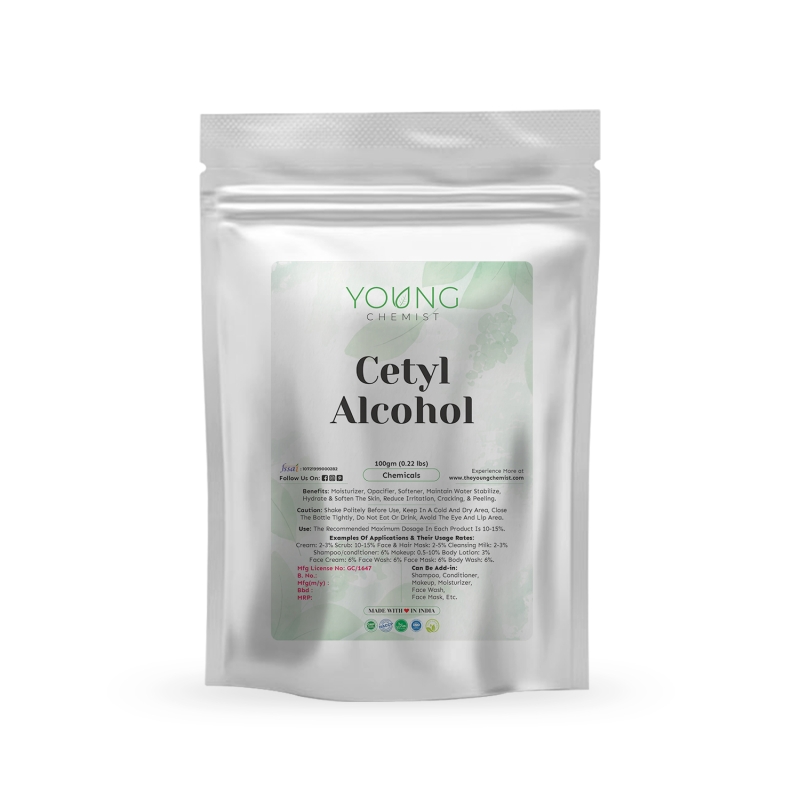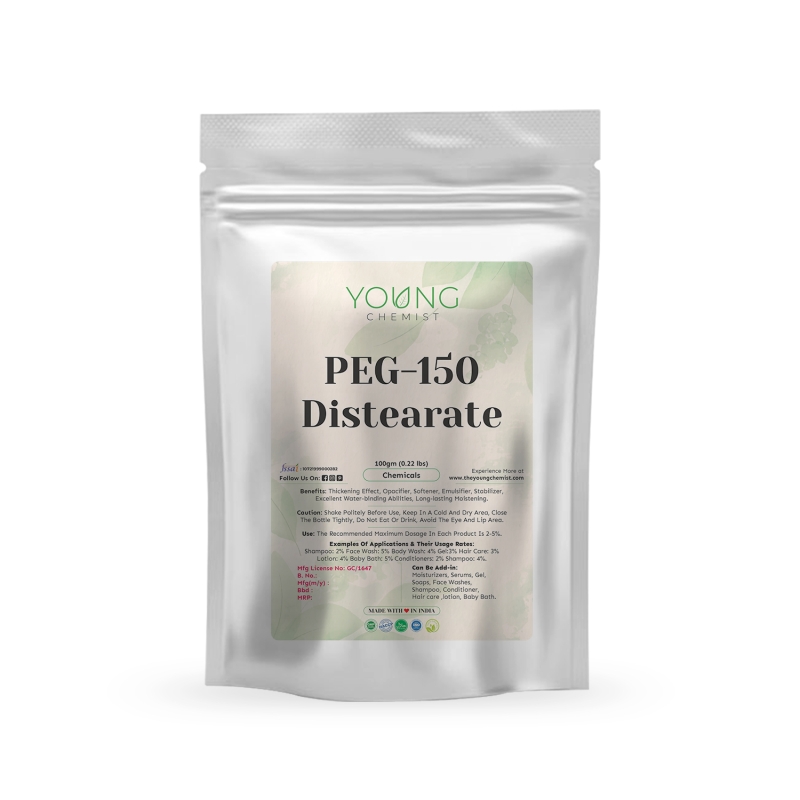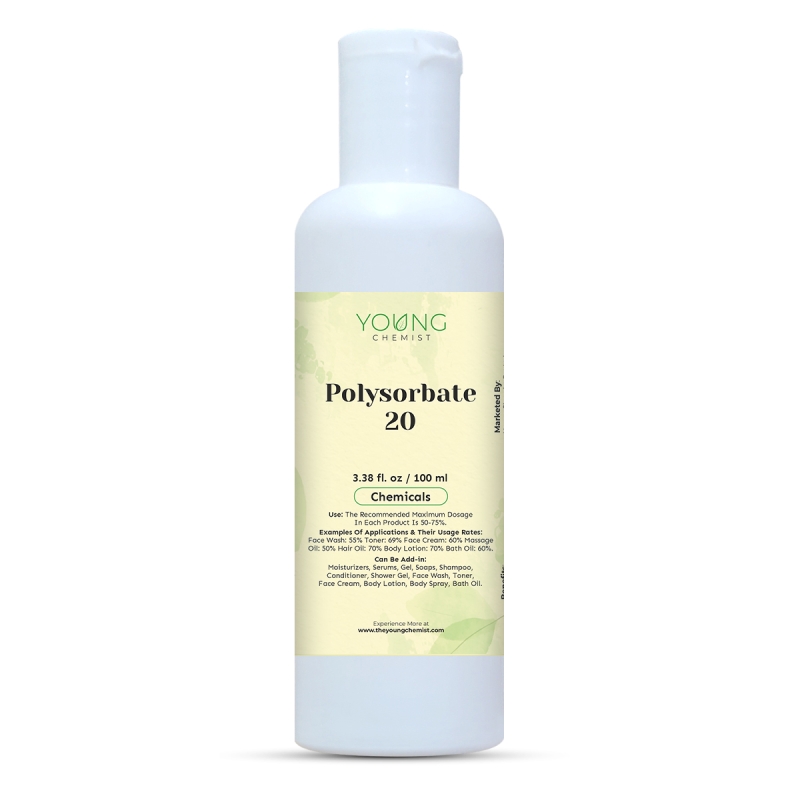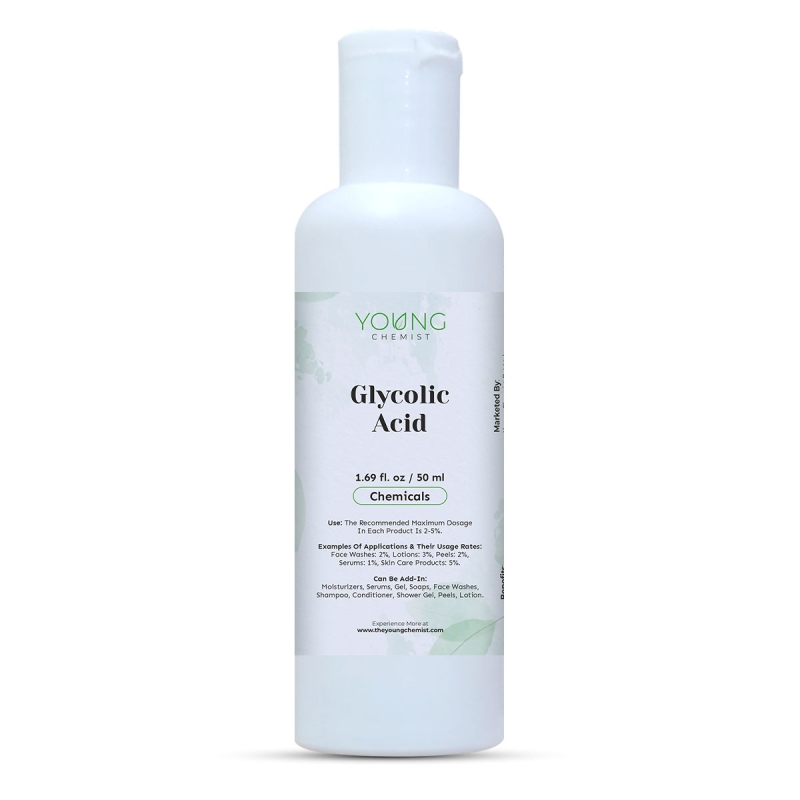-
No Item Added in Cart.
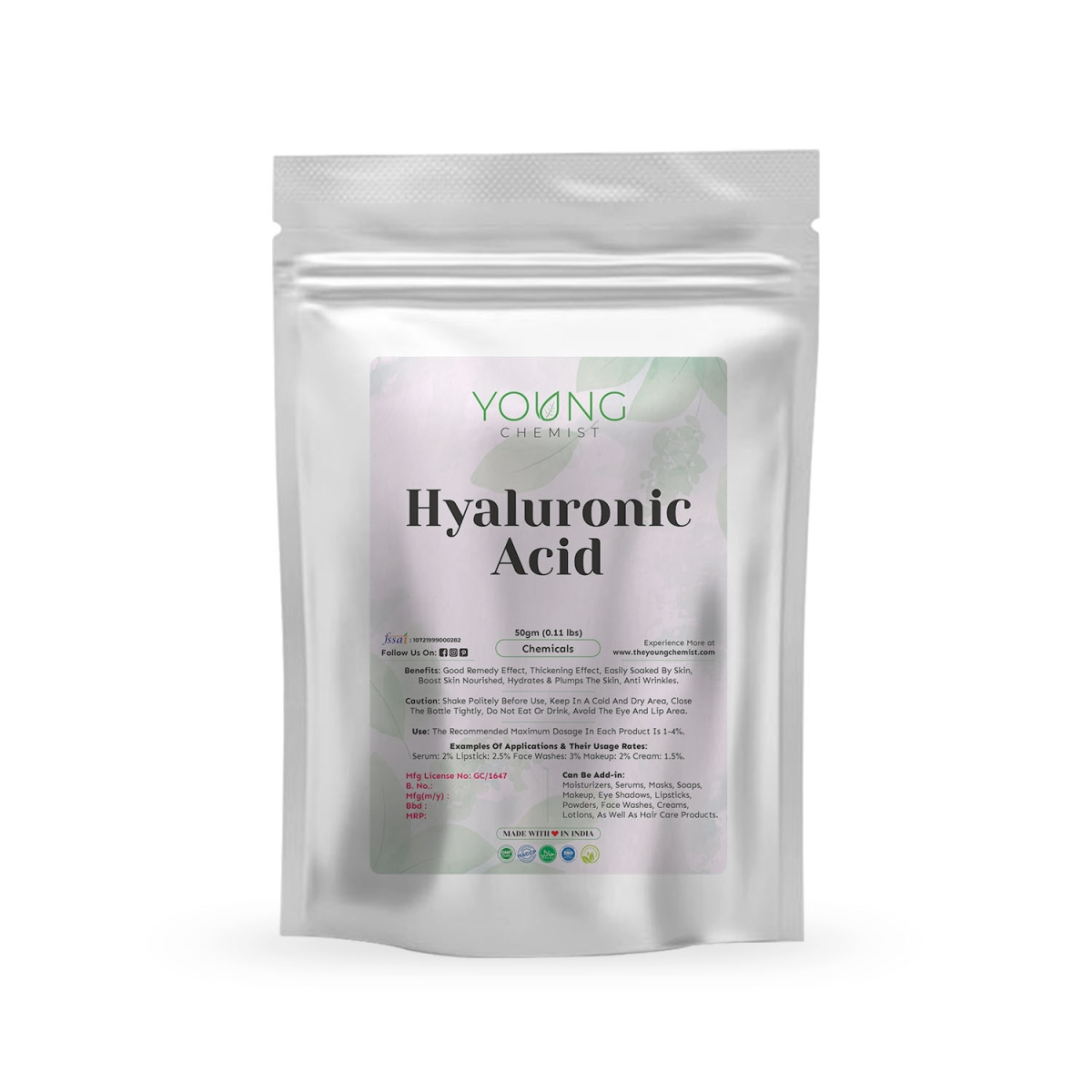
Young Chemist Hyaluronic Acid is a popular cosmetic chemical that offers numerous benefits for the skin. It is a naturally occurring substance in the body that helps retain moisture, giving the skin a hydrated and plump appearance.
- Cleansing: Start by cleansing your face thoroughly to remove any dirt or impurities.
- Application: Apply a few drops of Hyaluronic Acid serum or cream to your fingertips.
- Gentle Massage: Gently massage the product into your skin using upward circular motions. Focus on areas prone to dryness or fine lines.
- Follow-up: Allow the product to absorb into the skin before applying any additional skincare products, such as moisturizer or sunscreen.
- Hydration: Hyaluronic Acid has the ability to hold up to 1,000 times its weight in water, making it an excellent hydrating ingredient. It helps replenish moisture in the skin, keeping it supple and preventing dryness.
- Anti-Aging: With its moisturizing properties, Hyaluronic Acid helps reduce the appearance of fine lines and wrinkles. It promotes a smoother, more youthful complexion by enhancing the skin's elasticity and firmness.
- Skin Repair: This chemical also aids in wound healing and tissue repair. It can help soothe and repair damaged skin, making it beneficial for addressing sunburns, scars, and other skin irritations.
- Improved Texture: Hyaluronic Acid enhances the skin's texture by providing a plumping effect. It helps minimize the visibility of pores and gives the skin a smoother and more even appearance.
- Patch Test: Before incorporating Hyaluronic Acid into your skincare routine, perform a patch test on a small area of your skin to check for any potential allergic reactions or sensitivities.
- Product Quality: Ensure that you purchase Hyaluronic Acid products from reputable brands or manufacturers to ensure their quality and effectiveness.
- Sun Protection: While Hyaluronic Acid helps hydrate the skin, it does not provide sun protection. Remember to apply a broad-spectrum sunscreen with SPF before going outdoors.
- Potential Irritation: In rare cases, individuals with extremely sensitive skin may experience mild irritation or redness when using Hyaluronic Acid. If any adverse reactions occur, discontinue use and consult a dermatologist.
Remember, it's always advisable to consult a dermatologist or skincare professional for personalized advice regarding the use of Hyaluronic Acid or any other cosmetic chemical.

Abhishek Kumar Golu
Product Questions
Hyaluronic Acid is a natural substance found in your skin that helps keep it hydrated and plump. It’s great because it holds up to 1000 times its weight in water, making your skin feel moisturized and smooth.
Hyaluronic Acid acts like a sponge, drawing moisture into your skin from the air and deeper layers. It helps your skin stay hydrated, which reduces dryness and fine lines.
Yes, Hyaluronic Acid is very gentle and works well for all skin types, including sensitive skin. It hydrates without causing irritation or clogging pores.
You can use Hyaluronic Acid products daily, both in the morning and at night. It’s safe to use regularly to keep your skin hydrated.
For the best results, apply Hyaluronic Acid to slightly damp skin. This helps lock in moisture more effectively, leaving your skin hydrated for longer.
Yes, Hyaluronic Acid helps reduce the appearance of fine lines and wrinkles by keeping your skin plump and hydrated, giving you a more youthful look.
Yes, Hyaluronic Acid works well with most skincare ingredients, including Vitamin C, retinol, and niacinamide. It’s a great hydrating boost in any skincare routine.
You’ll likely notice an immediate improvement in hydration and smoothness after your first use. For long-term benefits like reducing fine lines, it may take a few weeks of regular use.
Yes, Hyaluronic Acid is lightweight and non-greasy, making it perfect for oily and acne-prone skin. It hydrates without clogging pores or making your skin feel greasy.
Hyaluronic Acid is generally safe and side effects are rare. If you have very sensitive skin, you might experience mild irritation, but this is uncommon.
Yes, you can use hyaluronic acid for your lips! It's great for keeping them hydrated and smooth. Hyaluronic acid attracts moisture, which helps to plump up your lips and make them feel soft. You can find it in lip balms or serums, and it's safe for daily use. Just apply it like you would any other lip product for a moisturizing boost.
Vitamin C serum brightens the skin, evens out skin tone, and reduces dark spots by boosting collagen production. It's great for anti-aging and sun damage. Hyaluronic acid serum, on the other hand, deeply hydrates the skin, keeping it plump and smooth by retaining moisture. Use Vitamin C in the morning for glowing skin and hyaluronic acid anytime for hydration. Both together work wonders.
Reviews (1)

Abhishek Kumar Golu





